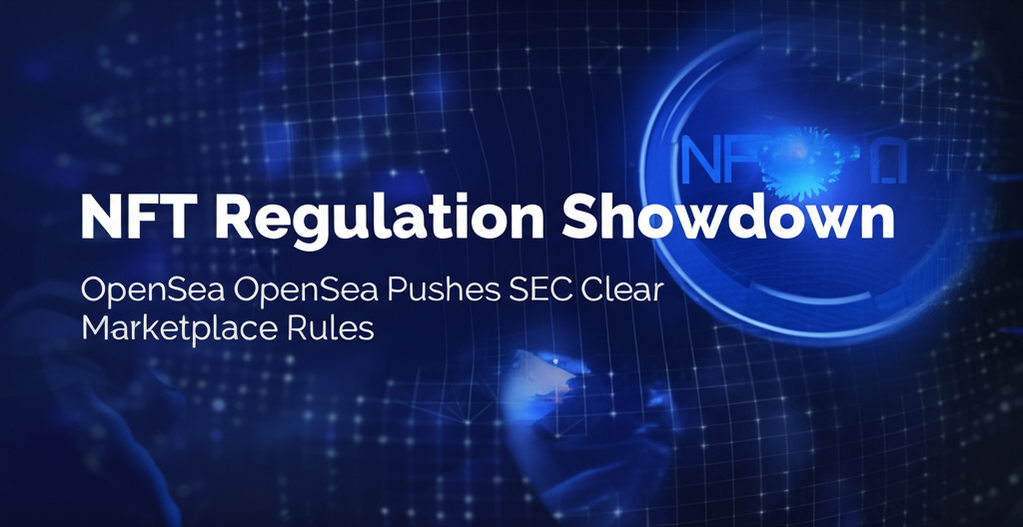NFT Regulation Showdown: OpenSea Pushes SEC for Clear Marketplace Rules

Leading NFT platform OpenSea is urging the U.S. Securities and Exchange Commission (SEC) to formally declare that marketplaces for non-fungible tokens do not fall under the definition of securities exchanges or brokers.
In a direct appeal to SEC Commissioner Hester Peirce, OpenSea outlined its position: “We propose that the SEC clearly state that NFT marketplaces like OpenSea do not qualify as exchanges under federal securities laws.” The platform contends that its operations diverge significantly from traditional financial exchanges.
OpenSea’s argument hinges on the unique nature of NFTs. Unlike fungible securities traded on exchanges, most NFTs are distinct digital items, typically offered by a single seller at any given time. The platform argues this fundamental non-fungibility prevents NFT marketplaces from meeting the legal requirements of an exchange, which often involve bringing together multiple buyers and sellers for identical assets.
Furthermore, OpenSea emphasizes that it doesn’t actually handle the transactions. All NFT trades execute directly on the underlying blockchain through smart contracts, functioning independently from the OpenSea interface.
[OpenSea and YOAKE brings ‘The Seven Deadly Sins’ anime NFTs to Soneium]
Users always retain control over their digital assets within their personal wallets and initiate transfers themselves. OpenSea describes its role as primarily enabling discovery and connection between potential buyers and sellers, rather than acting as a financial intermediary.
Based on this decentralized operational model, OpenSea suggests that applying traditional regulatory standards—such as capital requirements, extensive recordkeeping, and professional conduct rules—is inappropriate and impractical for NFT marketplaces.
OpenSea Argues Against Broker Classification
The platform also strongly refutes any characterization as a broker under the Exchange Act. OpenSea reiterates that it does not engage in activities typical of brokers, including offering investment advice, negotiating deals, executing trades on behalf of users, holding customer funds or assets, or facilitating financing.
OpenSea referenced the court’s findings in the SEC v. Coinbase case, noting that providing software tools (like wallets) and access to market data wasn’t sufficient to classify a platform as a broker. OpenSea believes its services, such as displaying NFT listings or highlighting popular collections, are analogous and do not constitute brokerage activities.
To resolve persistent ambiguity surrounding NFT regulation, OpenSea has requested the SEC issue clear, informal guidance. The platform suggests an interpretive release or a staff bulletin clarifying the application of Rule 3b-16 (defining ‘exchange’) to NFT platforms, drawing parallels to recent SEC communications concerning memecoins and stablecoins.
“This clarification would offer immediate benefits to NFT collectors, buyers, and sellers, as well as the broader NFT ecosystem, by removing regulatory uncertainty,” OpenSea stated.
The regulatory status of NFTs became a pressing issue when OpenSea previously received a Wells notice from the SEC, indicating a potential enforcement action. However, the agency later closed its investigation without pursuing charges, occurring during a period marked by increased calls for regulatory clarity within the digital asset sector.
